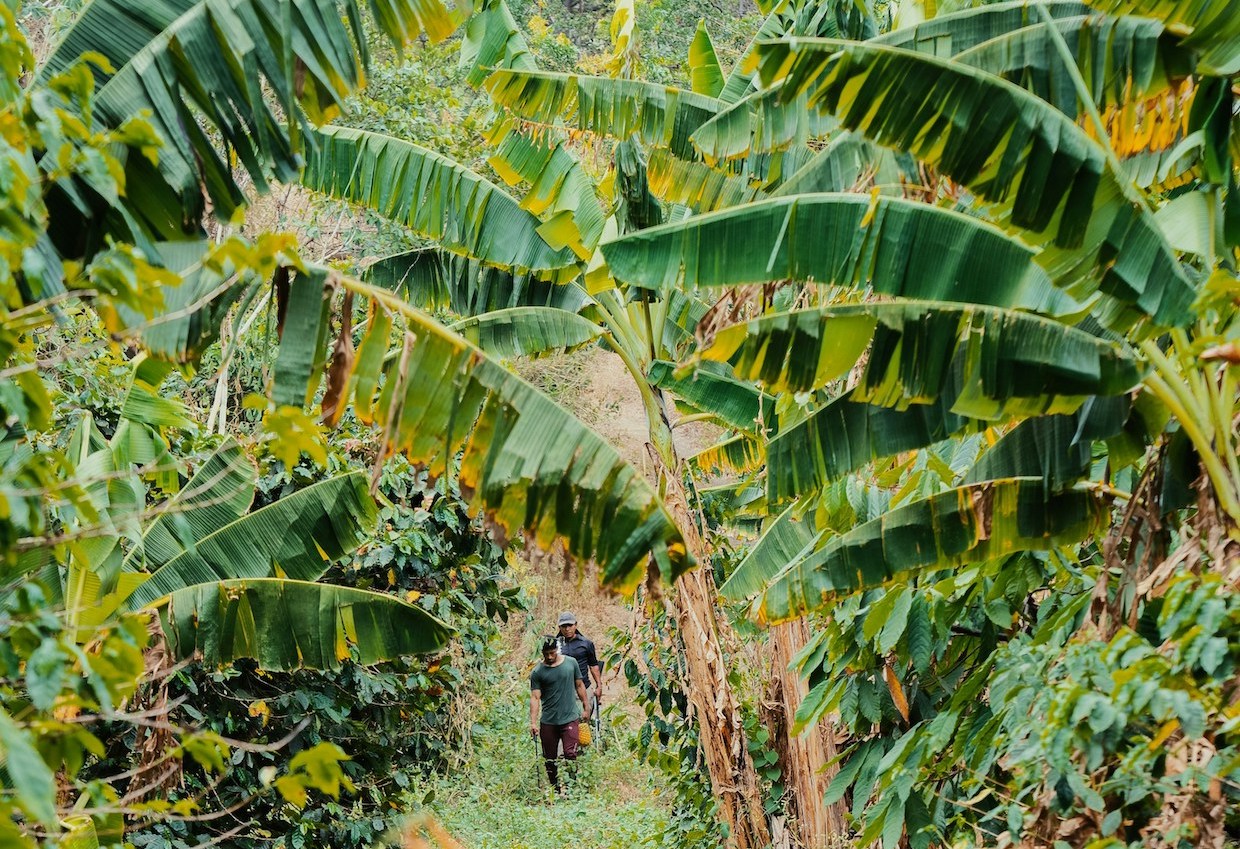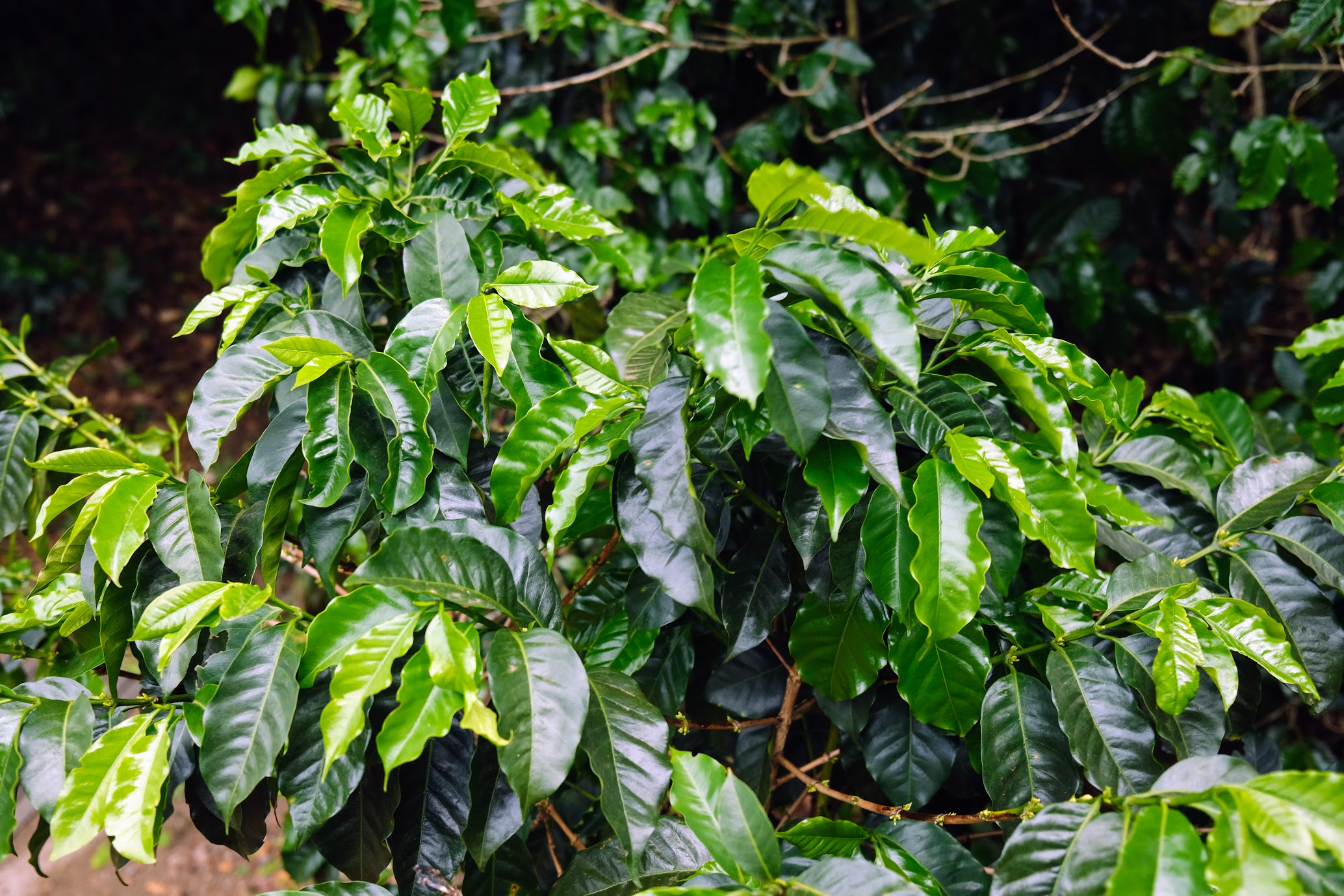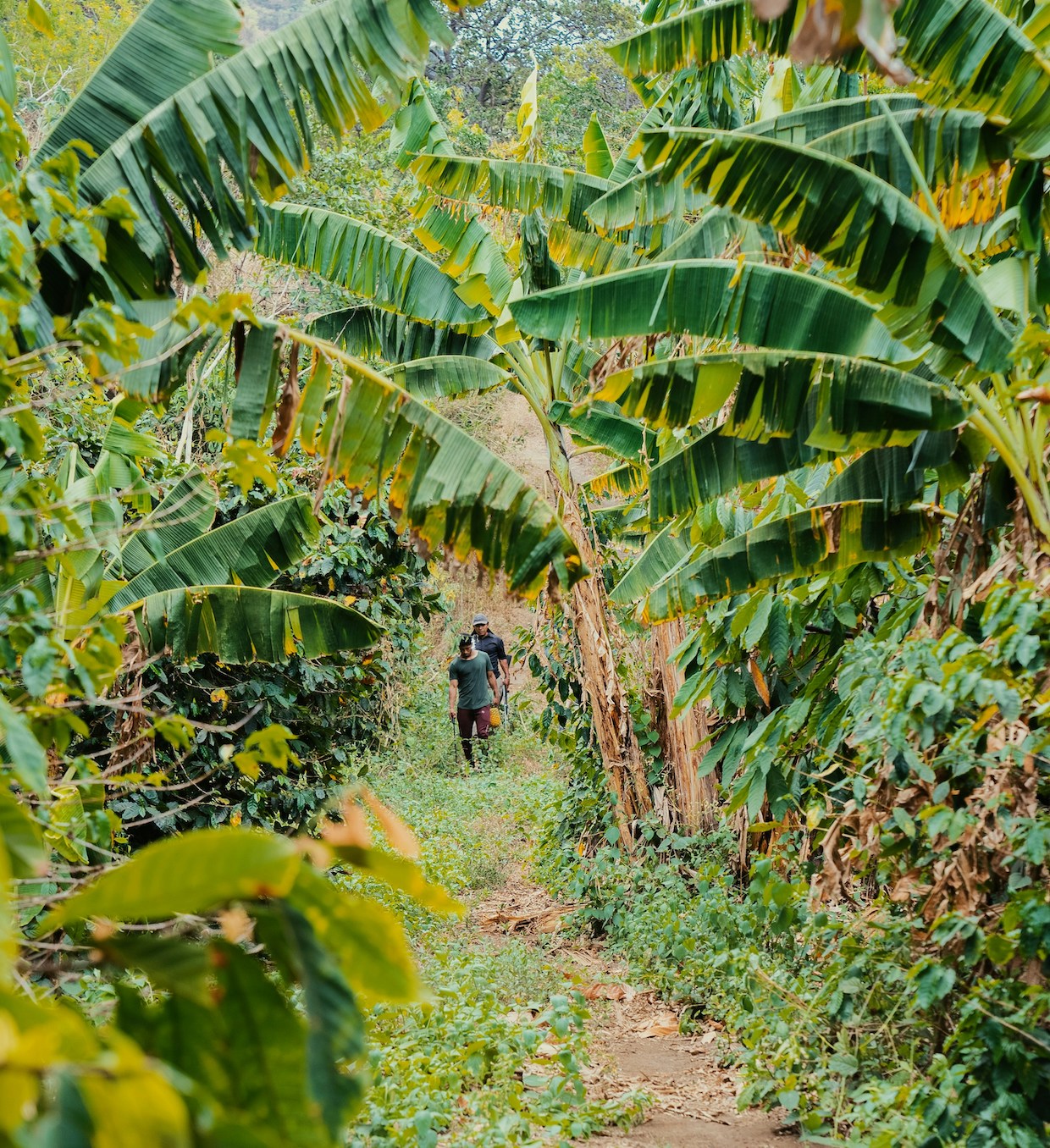Coffee growing under a shade canopy. Daily Coffee News photo by Nick Brown.
Rainforest Alliance just announced the launch of a new standard and certification for regenerative agriculture in coffee, with a distinct “regenerative” seal expected to land on consumer coffee bags in 2026.
The organization, which reduced requirements for its core sustainable agriculture certification earlier this year, said the new regenerative agriculture add-on is designed to give farmers and buyers a science-based pathway to achieve positive outcomes in soil health, biodiversity, water stewardship, climate resilience and livelihoods.
In an announcement today, Rainforest Alliance also pointed to a recent report from TechnoServe suggesting that transitioning to regenerative agriculture in numerous key coffee-growing countries could significantly boost exports and farmer income.
“Markets need to move beyond a ‘do no harm’ mindset to one that repairs and restores,” Rainforest Alliance CEO Santiago Gowland said. “Now is the time to transition to a new model of agriculture — one where every cup of coffee gives back more than it takes from the land and the people who care for it.”
Through the new program, current RA certificate holders can add 17 regenerative requirements to their existing Sustainable Agriculture Standard certification. Alternatively, they can pursue regenerative certification as a standalone option, combining those 17 criteria with 102 other baseline requirements.
Over the past decade, the phrase “regenerative agriculture” has moved from the most progressive fringes of the direct-trade specialty coffee movement into mainstream parlance regarding corporate sustainability. An organization called the Regenerative Organic Alliance was the first to market a “regenerative” seal for coffee, with the first Regenerative Organic Certified coffees reaching the market in 2022.
The timing of the RA program is notable on multiple fronts, as climate change, deforestation and complacency among the most powerful public and private sector actors continue to threaten the future of coffee farming.
It also comes just days after a separate NGO, the Global Coffee Platform, announced RegenCoffee, a non-competitive initiative that proposes a “common language” for regenerative agriculture. A guidance document from that initiative repeatedly references Rainforest Alliance work promoting regenerative agriculture from 2020 and 2022.
The timing of the RA standard also intersects with the looming implementation of the new European deforestation-free supply chain law, known as EUDR, coming for large European companies on Dec. 30, 2025.
As with most voluntary standards or certification schemes, the RA regenerative certification process has the potential to add burdens to smallholder farmers who may already be strapped for resources.
Yet in the announcement today, RA’s Gowland said that the add-on followed “years of research and collaboration with farmers and companies.”
RA said the regenerative standard is already being implemented at coffee farms in Brazil, Costa Rica, Mexico and Nicaragua, with companies sourcing coffees from those farms expected to bring the first regenerative-certified coffees to store shelves next year.
Comments? Questions? News to share? Contact DCN’s editors here. For all the latest coffee industry news, subscribe to the DCN newsletter.
Related Posts






